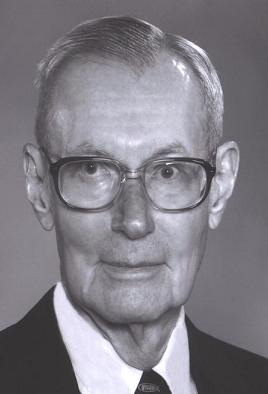On Tuesday, April 24, the economics profession lost one of the most insightful (albeit underappreciated) monetary scholars of the 20th century with the passing of Leland Yeager. Few economists have played as profound a role in the revival and development of monetary-disequilibrium theory as Yeager. Although his research interests were wide-ranging and his contributions to monetary economics too immense to do justice to in a brief blog post, it is worth reflecting at least on his contributions to our understanding of monetary disequilibrium, monetary constitutions, and sound money.
Yeager’s 1956 article “A Cash Balance Interpretation of Depression” is one of his most important and highly cited works. It is a must read for all aspiring monetary economists, particularly those interested in understanding the central role money plays in the economy. In the article, Yeager contends that depressions often arise from “an excess demand for money, in the sense that people want to hold more money than exists.” As he elaborated in his 1968 article “Essential Properties of the Medium of Exchange,” absent any corresponding increase in the supply of money, the only way for people to increase their real money balances to their desired level is to either (a) sell non-monetary assets in exchange for money (a tall task, particularly in a depressed economy characterized by an excess demand for money) or (b) curtail their spending. Either way, they must endure a long and excruciating “crying down” of prices.”
Thus, as Yeager argues, “an economy-wide excess demand for money shows up not as specific frustration in buying money but as dispersed, generalized frustration in selling things and earning income.”
These illuminating and influential works established Yeager’s bona fides in the monetary-disequilibrium tradition. They also establish his place at the vanguard of the monetarist counterrevolution. Yeager was a lifelong critic of what he called the Keynesian diversion in macroeconomics. He was especially critical of its dismissal of monetary explanations for depressions. In placing money and, in particular, monetary mismanagement at the center of his explanation of the Great Depression, his argument anticipated many of the essential insights made famous by Milton Friedman and Anna Schwartz’s A Monetary History of the United States. And in highlighting the essential role monetary authorities play in not only preventing an outright collapse in the supply of money but also in offsetting changes in the demand for money in order to prevent an excess demand for money from spilling over into an excess supply of goods and services that would be reflected in a decline in total spending, his insights also anticipated the more recent rise of market monetarism with its more refined emphasis on the importance of stabilizing the flow of nominal spending in an economy.
Although much of Yeager’s earlier work can be interpreted as a blueprint for improving the performance of our existing monetary institutions to avoid the catastrophic economic downturn he experienced during his childhood in the Great Depression, his contributions to sound money extend far beyond merely tinkering with the status quo. Particularly in his later works, he was a staunchly consistent advocate of free market monetary alternatives and a strict separation of state and money. In a 1983 article coauthored with Robert Greenfield entitled “A Laissez-Faire Approach to Monetary Stability,” Yeager put forward a proposal to replace government-issued fiat monies with a monetary unit that would be defined by an unchanging bundle of commodities selected to ensure the stable purchasing power of money over time. Throughout the last few decades of his career, Yeager outlined a number of other proposals for free market currencies that would sever any link between governments and money. Although a full review of these proposals is beyond the scope of this blog post, I’d encourage interested readers to read the collected articles on the subject in The Fluttering Veil.
So here’s to Leland Yeager, a true maestro of sound money. Let’s hope his expertise on money isn’t all for naught in that scarcity-free (and hence presumably moneyless) ivory tower in the sky.





